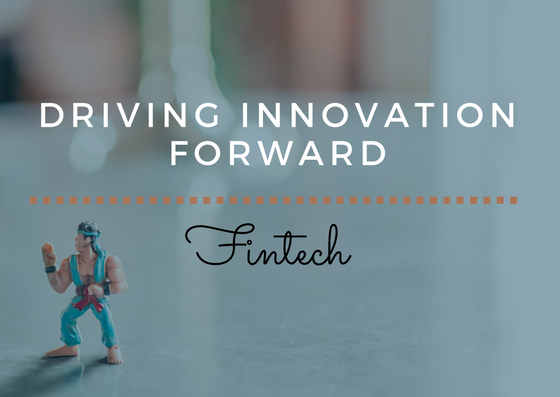4 years ago in 2014 as the financial world was still in the midst of navigating through the financial crises a new phenomenon emerged. The technologies of the Fourth Industrial Revolution, bringing a range of technologies brought forth a new entrance, fintech into the financial landscape. These innovative fintech were disruptive and had the potential of changing the way how financial institutions conduct their business.
4 years on we are able to look back and assess the strengths and weaknesses of fintech and peek into the future of fintech and what lies beyond the horizon for financial services and fintech.
Fintech Strengths
- Driving the direction, shape and pace of innovation
- Have raised customer expectations and set the bar higher
Fintech weaknesses
- New innovations have not negated the high cost for customers switching from incumbents to new provider.
- Unable to create a new financial infrastructure but been able to make improvements on the traditional infrastructure and ecosystem.
Today’s Scenario
Though fintech has raised the competition for financial Institutions they have not so far been able to materially change the competitive landscape. The rapid growth of the fintech ecosystem allows firms to externalise parts of their innovation function, as they wait and see which new offerings gain traction before deploying their own solutions. The innovativeness and nimbleness of fintech companies will continue to make them a viable competitor to incumbent financial institutions and hence, affect the future of fintech.
Future of Fintech
Below are the forces in play that have the potential to shift the competitive landscape of the financial ecosystem.
Cost Commoditisation
Commoditisation is the process in which goods that have economic value and are distinguishable in terms of attributes (uniqueness or brand) end up becoming simple commodities in the eyes of the market or consumers, thus weakening the brand owner.
Financial institutions will accelerate the commoditisation of their cost drivers that does not provide any competitive differentiation. Removing them as points of competition creates new grounds for competition. In addition, there will be more cost sharing utilities amongst peers. However, the rise of cost sharing utilities will lower the cost of entry for new fintech.
Profit Redistribution
Technology will drive organisations to bypass traditional value chains. This results in the profitability of organisations, who are positioned in the intermediate chain to be subjected to pressure from both sides. Hence, this creates a big pool of potential partners for fintech complementing their need for scale, capital and customer reach.
Experience Ownership
In the future customers will interact with fewer and fewer distributors as the market consolidates in this segment. In the future of fintech, power will shift to distributors who are owners of customer experience. Fintech companies who do not have a large customer base or ability to scale quickly will have to find niches in the market if they desire to become distributors. Therefore such companies offering specialised financial products could partner with distributors to compete with incumbents.
Rise of Customer Choice
Platforms that offer the ability to engage with different financial institutions from a single channel will become the dominant model for the delivery of financial services. In particular, successful examples are Tencent, Wave and ABI amongst many others. Therefore, such platforms will allow product focused fintech the opportunity to scale quickly.
Data Monetisation
With the future of fintech in mind, data will become increasingly important for differentiation. Additionally, as organisations endeavour to collect ever more data of their customers, ownership and control of the data will become a dominant issue for all stakeholders. Incumbent fintech will require expertise to help manage the use and security of their data. In the future of fintech, data security would be crucial in maintaining trust with customers.
Bionic Workforce
In this digital revolution, Artifical Intelligence will fundamentally shift the role of human capital in all organisations. Hence in the future of fintech, organisations will need to manage talent as a collective set of employees and machine‐enabled solutions. AI risk management will become businesses’ high priority. Thus, fintech companies who focus on Artificial Intelligence and automation will be in demand as companies seek to quickly gain expertise.
Systemically Important Techs
The rise of digital interfaces and data in financial institutions means financial institutions will increasingly be reliant on large tech firms. Financial institutions and financial services providers that chose not to work with large tech companies risk falling behind. They need to come together without themselves losing their core proposition. In the future of fintech, fintech companies could extend their reach with the help of the large tech. This as a result may turn themselves into attractive targets seeking technical talent.
Financial Regionalisation
Differing regional regulations are impeding financial globalisation. Such conditions encourage the growth of fintech as firms are now offering specialised offering. Divergent regional financial system is a serious obstacle for fintech trying to expand to other regions even though technology lowers the barrier to entry. With the future of fintech in mind, new ideas are best tested in a region and introduced into other regions with modifications or when conditions change
Conclusion
Though the threat of fintech altering the financial landscape has receded to a certain extent, their innovative character makes them a force still to be reckoned with. Therefore, the future of fintech will continue to be a disruptive force in the financial landscape.
Reference
Beyond fintech: A Pragmatic Assessment of Disruptive Potential In Financial Services, World Economic Forum, link
Related Articles
Fintech is Transforming the Financial Services Landscape
Connecting Global Fintech: Hub Review 2016
Related Articles

Singapore Businesses Remain Positive Outlook for 2024

Unveiling the Atradius Payment Barometer 2023: Downbeat Exports Outlook Poses Challenge for B2B Trading on Credit

